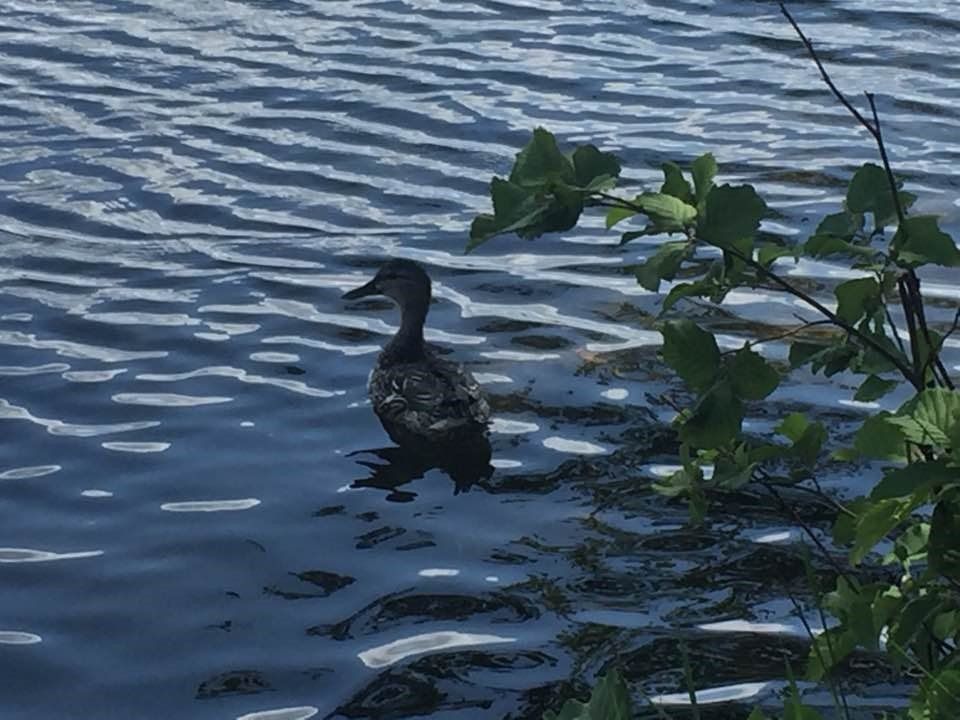A Vacation In A Moment
Carol Rogers-Shaw • January 24, 2020
Stress is insidious. It lurks in the dark corners of our mind, waiting to spring to the forefront of our days. It lies just under the surface of our nighttime slumber, waiting to spark a nightmare that drives us awake with a startling, fearful jolt. It is the hidden corrosion that slowly, stealthily, eats away at good health and happiness.
Stress is insidious. It lurks in the dark corners of our mind, waiting to spring to the forefront of our days. It lies just under the surface of our nighttime slumber, waiting to spark a nightmare that drives us awake with a startling, fearful jolt. It is the hidden corrosion that slowly, stealthily, eats away at good health and happiness. It’s a powerful force that takes every ounce of energy to combat, and it’s hard to tell how much of the exhaustion that eventually sets in is due to the stress and how much is due to the battle to overcome the stress. I wonder, has Edvard Munch’s work, The Scream of Nature, become so iconic because we can all recognize the haunted eyes, the gaping mouth, the disturbing landscape, the agony of anxiety?
Sure, there are ways to leave stress behind, but let’s be honest, it’s not so easy to successfully employ those stress-relieving techniques. When I feel my level of stress mounting, I can read a highly entertaining book, often one with no great literary merit, but merely an engaging story I can get lost in for a while. Or I can take the dog for a long walk, pulling her along as she sniffs the edges of the walkway. I can sit by the fire in the winter or out on the back deck in the summer and sip a cup of freshly brewed tea – the steeping tea bags in the ceramic pot, the tea cozy keeping it warm, the right mug settling the nerves with the comfort of familiarity. I can watch some mindless television – the before and after images of HGTV can be sustaining as even the most hideous and dilapidated old structure can turn miraculously into a sleek, refreshed modern home. And I think maybe the dark circles under my eyes, the drawn and haggard look, really will fade and I can leave behind the ravages of stress. Or I can just cry in the shower, hoping the tears that roll down my face and mingle with the hot water from the faucet cleanse me from the worry building inside my tense body.
We all need to get away sometimes and leave the stress behind, to move past those times of high anxiety and escape the heart palpitations, the headache, the nausea. We need to feel more relaxed, to forget the worries for a time, to discover a clearer path through the troubles. If you search “vacation” on Google images, there are a multitude of sandy beaches, swaying palm trees, soothing aqua water. Or you might find mountain vistas, tranquil lakes, sunsets that paint the skies with oranges and pinks and purples. But it’s not so easy to stop everyday life and hop that plane to exotic locales to ease the stress. Sometimes we have to find a vacation in a moment.
I remember as a child walking home from the school bus stop in the afternoon. The street curved down a long slow slope past suburban split levels and raised ranches. My home was at the end, on the right side of the cul-de-sac. It wasn’t a particularly pretty street. There were forest trees behind the houses, flowers in front gardens, but no vast expanses of natural beauty. Yet, I still remember some days where I would feel the sun shining in a clear blue sky and know the safety of home, no matter what had happened that day at school. It was a vacation in a moment.
I remember as I grew older, driving down a main road through town, heading to visit friends. As I neared the end, before I had to turn to the left and wind along a stretch with trees bordering both sides, the reservoir peaked through, stretching out in the distance. There was something uplifting about that glimmer of water reflecting the sun in its ripples. It was a vacation in a moment.
I remember another time as an adult living on a different street, in a different suburban community, although here the houses were old and close together. The short front yards ended in concrete sidewalks, but there were also huge old trees that lined the road. On one winter night, I walked down the street in serene silence as the snow fell, no other soul in sight, no cars skidding through slush, just peace cocooned in soft white flakes. It was another vacation in a moment.
I think we have to make an effort to take a vacation in a moment, to recognize the loveliness of a single flower when there’s no expansive distant view of paradise, to appreciate the placidness of a single duck swimming in clear water when there’s no winding shoreline stretching to the horizon. These moments are what can get us through the stress; they can be our armor in the battle, a winning moment to cherish, a vacation to revive us.












